Korean soju maker HiteJinro aims high with its first Vietnam plant
The liquor maker aims for an ambitious $362 million in annual global soju sales by 2030
By Jun 19, 2024 (Gmt+09:00)
Samsung steps up AR race with advanced microdisplay for smart glasses


When in S. Korea, it’s a ritual: Foreigners make stops at CU, GS25, 7-Eleven


Maybe Happy Ending: A robot love story that rewrote Broadway playbook


NPS yet to schedule external manager selection; PE firms’ fundraising woes deepen


US auto parts tariffs take effect; Korea avoids heavy hit


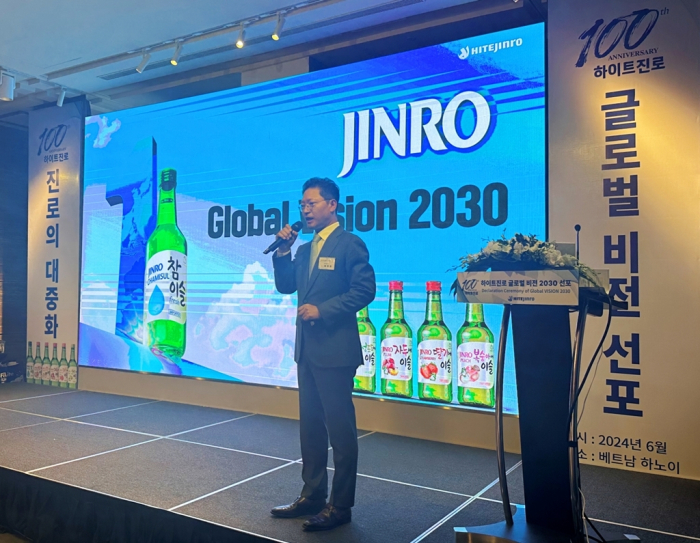
HANOI – Thai Binh, a port city about 120 km southeast of the Vietnamese capital, has long been associated, in people’s minds, with the idea of being less developed than in other parts of the country due to its heavy reliance on agriculture along the Red River Delta.
A two-hour drive from Hanoi, the broader Thai Binh province is now shedding its time-old image, ready to take off with the construction of the Green i-Park industrial complex, a government-designated special economic zone, well underway.
Strategically located between the capital and Haiphong, a northeastern economic powerhouse, Thai Binh will soon witness the emergence of an advanced industrial complex on a 5.88 million-square-meter plot of land.
At the heart of the yet-to-be-built complex, another ambitious seed of dream has been sown and is growing: HiteJinro Co.'s Global Vision 2030.
“We will build our first overseas soju plant right here over the vast plain,” said Hwang Jung-ho, managing director in charge of the South Korean liquor firm’s overseas business.
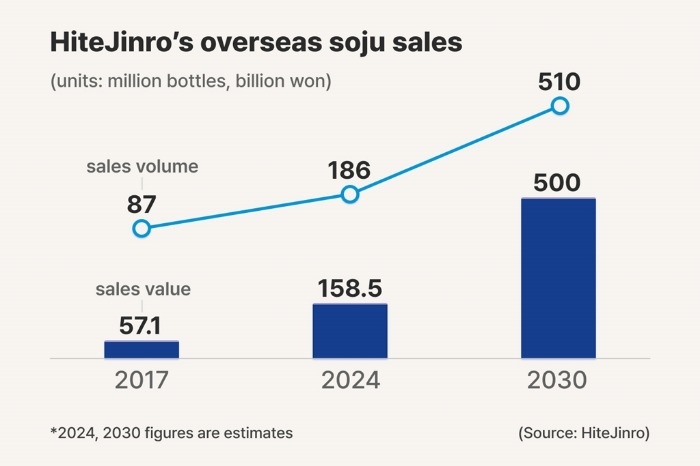
Jang In-seop, senior managing director of HiteJinro, said the plant would serve as its base to expand into other parts of Southeast Asia, and eventually, the global market.
A FACTORY 11 TIMES THE SIZE OF A SOCCER FIELD
HiteJinro, Korea’s top alcoholic beverage maker, plans to build a plant 11 times the size of a soccer field inside the industrial complex.
The company plans to break ground on the $100 million factory in the first half of next year with an aim for completion by 2026.
Once up and running, the plant will initially have an annual production capacity of 1 million boxes or 30 million 360-milliliter bottles of fruit-flavored soju.
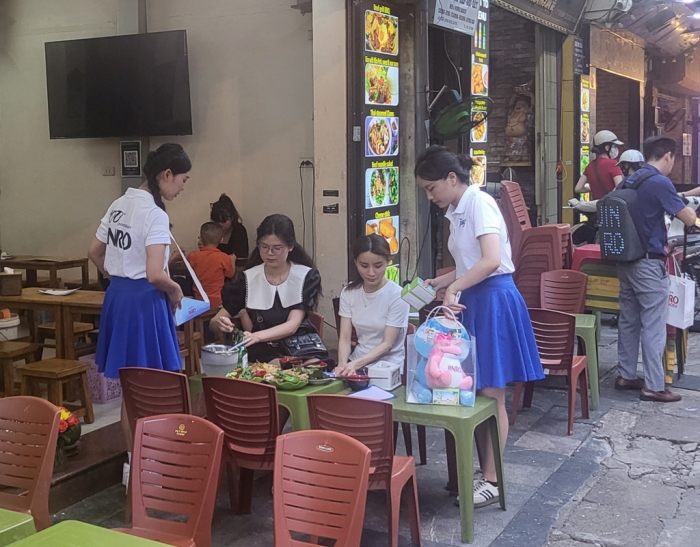
Soju, often called Korean vodka because of its strong alcohol content, was long shunned by non-Koreans.
In recent years, however, the clear, colorless distilled Korean firewater has been gaining popularity even among young consumers, collectively known as MZers, captivated by new kinds of soju with a variety of fruit flavors and lower alcohol content than traditional soju.
HiteJinro signed a land lease agreement with the local Vietnamese government in January.
The company’s first overseas manufacturing facility in Vietnam also comes as it celebrates its 100th anniversary this year.
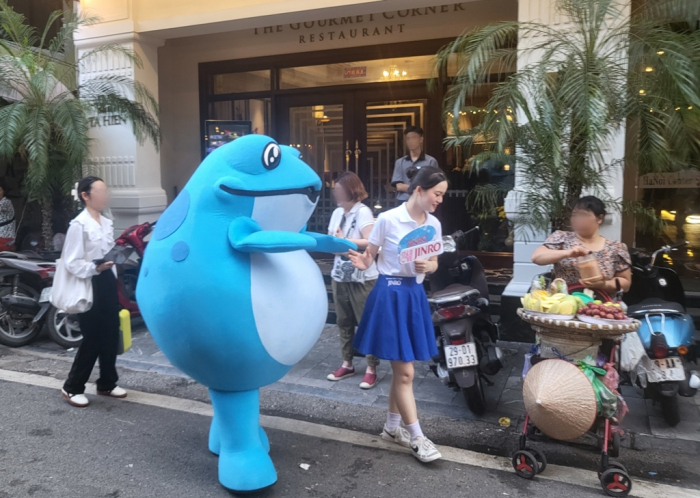
AIMS FOR OVER $360 MILLION SOJU SALES BY 2030
HiteJinro currently exports soju to 86 countries, starting with Vietnam in 1968.
It now boasts 18 “strategic countries,” including the US, China and Japan, to which it exports more than 50,000 bottles of soju annually, up from just eight in 2017.
The company aims to achieve annual soju sales of 510 million bottles worth 500 billion won ($362 million) by 2030 – an ambitious goal when compared with this year’s sales target of 158.5 billion won.
In overseas markets, HiteJinro’s soju products are sold under its flagship Jinro brand. In Korea, its soju liquor is sold under the Chamisul and Jinro brands.
The company controls 65% of the 3.5 trillion won Korean soju market, with smaller rival Lotte Chilsung Beverage Co. claiming 20% and others holding the remainder.
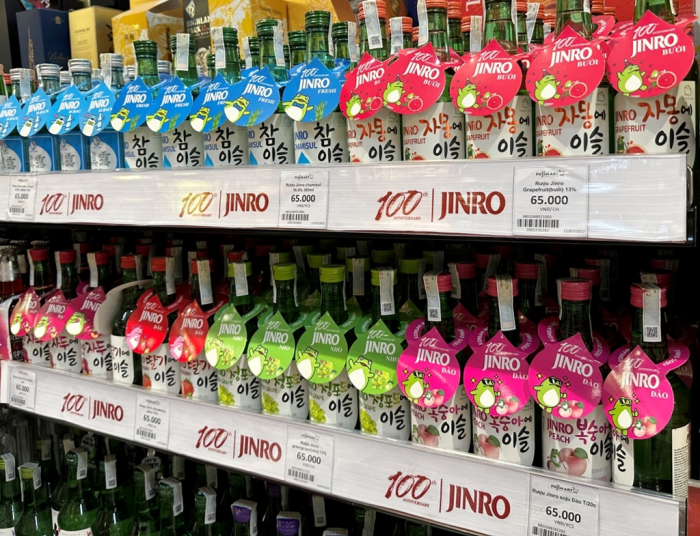
THAI BINH GOVERNMENT SUPPORT
The local Thai Binh government is striving to lure foreign companies into the new industrial complex.
It plans to exempt foreign companies investing in the complex, including HiteJinro, from imposing corporate taxes for four years.
For the next nine years only a 5% corporate tax will be levied on companies in the industrial complex, and then 10% for the following two years.
Entitled companies will also be allowed to use land inside the complex for 50 years and will be exempt from land tax for 18 years.
“The province is committed to providing active support for HiteJinro and other companies in the industrial complex,” said Nguyen Khac Than, chairman of the Thai Binh People's Committee.
Write to Hun-Hyoung Ha and Hye-won An at hhh@hankyung.com
In-Soo Nam edited this article.
-
 Food & BeverageHiteJinro signs land agreement for Vietnam soju plant
Food & BeverageHiteJinro signs land agreement for Vietnam soju plantJan 23, 2024 (Gmt+09:00)
1 Min read -

-
 Food & BeverageHiteJinro to build first overseas soju plant in Vietnam
Food & BeverageHiteJinro to build first overseas soju plant in VietnamOct 16, 2023 (Gmt+09:00)
1 Min read -
 Food & BeverageLotte’s soju team applauded as MZers bedazzled by sugar-free Saero
Food & BeverageLotte’s soju team applauded as MZers bedazzled by sugar-free SaeroApr 21, 2023 (Gmt+09:00)
2 Min read -
 Chief ExecutivesSK Hynix CEO Lee Seok-hee: Star engineer, bookworm, soju connoisseur
Chief ExecutivesSK Hynix CEO Lee Seok-hee: Star engineer, bookworm, soju connoisseurJan 12, 2021 (Gmt+09:00)
3 Min read -
 Food & BeverageHiteJinro's fruit-flavored soju bedazzles Chinese MZers
Food & BeverageHiteJinro's fruit-flavored soju bedazzles Chinese MZersSep 08, 2021 (Gmt+09:00)
1 Min read -
 Food & BeverageHiteJinro's fruit-flavored soju becomes huge hit among Russian MZers
Food & BeverageHiteJinro's fruit-flavored soju becomes huge hit among Russian MZersJun 21, 2021 (Gmt+09:00)
1 Min read


